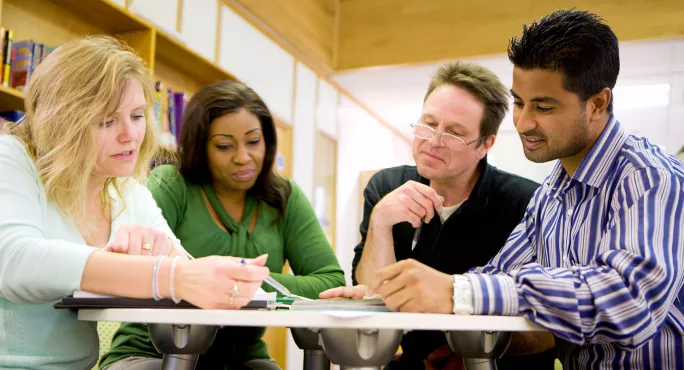- Home
- Leadership
- Tips & Techniques
- How one special school’s trauma-informed practice has helped 40 settings
How one special school’s trauma-informed practice has helped 40 settings

Since 2020, we’ve seen more children in mainstream schools struggling with socialisation because of the isolation they experienced during the pandemic.
We saw how they would benefit from the trauma-informed practice we use at Hope School, a maintained special school for students who are neurodivergent and/or have social, emotional and mental health conditions.
So, to share the work that Hope School was already doing with a larger group of schools, we joined with Liverpool Virtual School to launch HEARTS, a CPD programme to support staff to better help young people with complex social and emotional needs.
Since January 2021, we have worked with staff in 40 Liverpool schools - primary, secondary, mainstream and specialist - to make their settings more inclusive.
We’re already seeing the impact. One school that started the programme almost four years ago is now in the top two in the city for outcomes. And a primary school that was previously dealing with poor attendance saw a 12.9 per cent improvement in persistent absenteeism last year, and has eradicated suspensions and exclusions.
Here’s what we do - and why it works.
Development sessions
The two-year programme has space for 15 schools each year. The schools pay for the CPD, which is partly subsidised via the pupil premium.
We start with audit-type development sessions with each school’s leadership team, where we look at our HEARTS acronym. The project model was developed using the findings of research undertaken by the Rees Centre at Oxford University.
- Could this model help solve the SEND funding crisis?
- Anxiety in primary schools: how to understand and tackle it
- Investment is needed to fix education problems of past 20 years
HEARTS stands for:
- Holistic thinking
- Empowering the school community
- Aspirations for every pupil
- Relational focus
- Trust and safety
- Shared purpose
Using this, we ask the staff what they think their strengths are and where they’d like to improve, and they create an action plan.
We encourage schools that have different strengths to team up, so they can learn from each other and empower themselves to change.
Self-sustaining networks
In the following half term, we run a network session, where two key practitioners from each school come together. That’s often the headteacher, as well as a pastoral lead, Sendco or assistant head.
The session starts with a check-in - how is everyone feeling? Our peer-led approach means that we follow the needs of the group, so sometimes someone will say something that changes the whole direction of the session.
Most of the time, we aren’t giving strategies but encouraging others to share their experiences and solutions. We can’t tell a school how to adapt the concepts because they’re the ones who know their settings. So we ask the room to tell us how they think they might work for them. The network then becomes self-sustaining.
All-staff approach
What follows are half-termly CPD sessions for the project leads, where clinical psychologists lead on the theory behind our model.
It’s focused on academic rigour because it’s important that the staff understand why they’re learning this. It’s then up to the project leads to feed this learning back to their whole staff, so they feel responsible for their progress.
In the meantime, other staff at the schools can join special interest groups. All staff have access to these - not only the project leads, but all site staff, including cleaners and cooks, for example.
It’s important that everyone who has an interaction with a child is on the same page because if one member of staff goes against the practice, it undoes the work of the 50 interactions that the pupil has had before.
Community celebrations
Then, once a year, we hold a conference with keynote speakers, for which all our schools use an Inset day. It’s an opportunity for everyone within the project community to come together and share experiences.
We don’t do one-off training sessions because it doesn’t work for this approach - we tell our schools that it’s a marathon, not a sprint.
We were thrilled to win a Nasen award for our work recently. This year, we are working with a multi-academy trust for the first time and we’ve been approached by schools outside Liverpool. We’re interested in pursuing that further - funding allowing.
Maxine O’Neill is the headteacher at Hope School, Liverpool. Carolyn Lawler is Liverpool Virtual School head
For the latest education news and analysis delivered every weekday morning, sign up for the Tes Daily newsletter
Keep reading for just £1 per month
You've reached your limit of free articles this month. Subscribe for £1 per month for three months and get:
- Unlimited access to all Tes magazine content
- Exclusive subscriber-only stories
- Award-winning email newsletters



